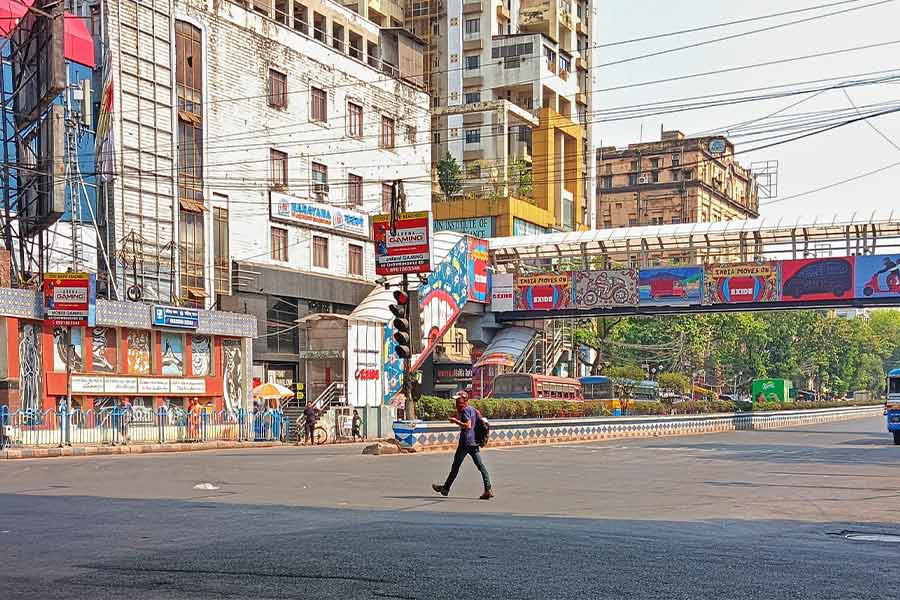The only way to cap treatment costs at private hospitals is to encourage competition and create a robust public health system, said health professionals.
The West Bengal Clinical Establishment Regulatory Commission, which regulates private hospitals in Bengal, has no right to fix hospital rates, Calcutta High Court ruled on Wednesday after hearing a petition by Apollo Multispeciality Hospitals.
“The Advisories and the Order are unconstitutional and are not binding on the petitioners,” Justice Moushumi Bhattacharya ruled, referring to the commission’s attempts to fix rates at private medical establishments.
“The West Bengal Clinical Establishment Regulatory Commission... are prohibited from giving any effect to the impugned Advisories and Order to the extent of fixation of rates and charges for Clinical Establishments....”
Retired judge Ashim Banerjee, chairman of the health regulatory commission, has said they would move a division bench of the high court against the order.
Several health experts said capping might not be the solution to reduce allegations of overcharging against private hospitals.
Needed: better infrastructure in government hospitals
“We need to improve government-run healthcare infrastructure so that people who do not have medical insurance and cannot afford high costs of treatment at private hospitals can go there,” said an official at a government medical college in Kolkata.
“At this moment, access to government healthcare facilities is the biggest problem.”
A doctor at another government medical college said there should be a system to make doctors in the government sector accountable.
“There is no accountability of doctors. There is no system to check whether a doctor is present in the OPD of a government hospital. No action is taken against doctors who do not attend OPD,” the doctor said.
Rupak Barua, president of the Association of Hospitals of Eastern India, said most of the problems regarding rates arise during a patient’s treatment in critical care units.
“The cost of treatment in ICUs and ITUs of private hospitals is high because of high-end equipment and manpower. Each patient has a dedicated nurse,” Barua said.
“In Kolkata, 90 per cent of the patients treated in critical care units are in the private sector. Only 10 per cent are treated in government hospitals. Even those who cannot afford expensive treatment are forced to get admitted in private hospitals because they don’t have access to government facilities,” he said.
Too much dependence on private healthcare
Weak government healthcare infrastructure has led to too much dependence on private hospitals in Bengal, said public health experts.
“Schemes like Swasthya Sathi are pushing many patients who otherwise should have been treated in government hospitals to the private sector. The low rates of Swasthya Sathi are forcing private hospitals to try and make up for the losses from other patients,” said a public health expert.
According to state health department data, more than 2.4 crore families in Bengal are covered under Swasthya Sathi. Each beneficiary family gets a coverage of up to Rs 5 lakh per annum.
More than 52 lakh hospitalisations have taken place till May under the scheme. “The amount spent in reimbursements, or at least a chunk of it, could have been used to improve infrastructure in government hospital,” the doctor said.
Capping not a solution
A doctor at a private hospital said capping rates could be detrimental to the quality of treatment. He gave the example of a device to perform thrombectomy, a procedure to remove blood clots. “If the price is capped, improved version of the device cannot be acquired,” said the doctor.
Health experts said the government should facilitate the setting up of more private hospitals. The increased competition, they feel, should keep rates in check.
Barua stressed the need for a long-term plan to strengthen government healthcare and increase the penetration of medical insurance.
“Now, barely 15 per cent people are covered by medical insurance in India,” he said.
Commission’s views
A member of the commission said the rates were fixed after deliberations with experts. “The rates were fixed keeping in account the costs incurred by hospitals. This helps patients understand what is the amount they should actually pay. Otherwise, there are different rates for the same category of hospitals,” said the member.






